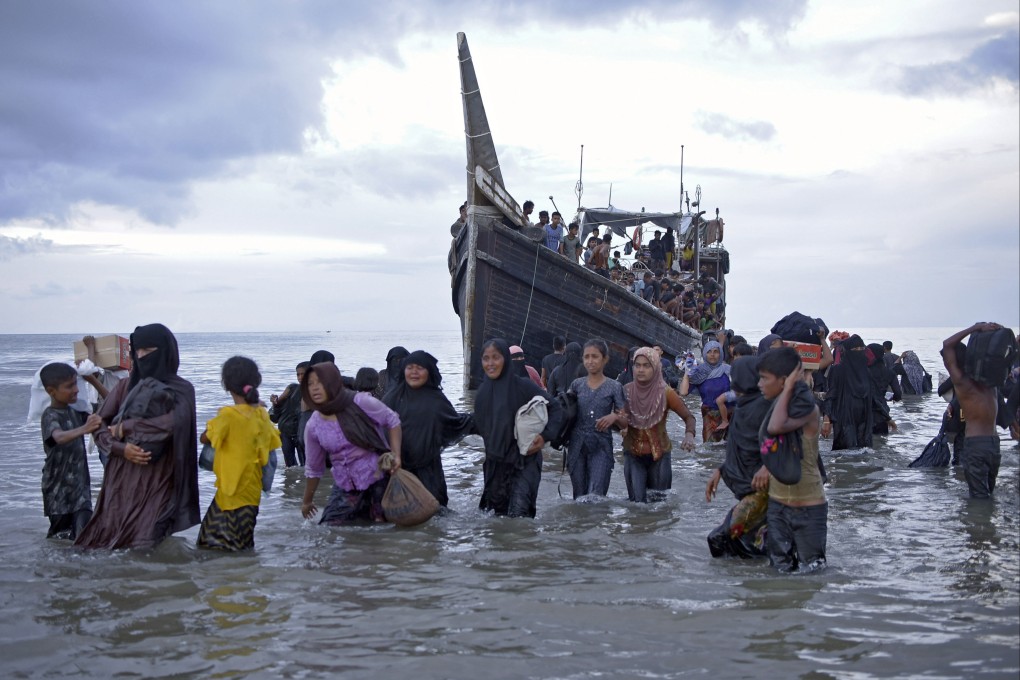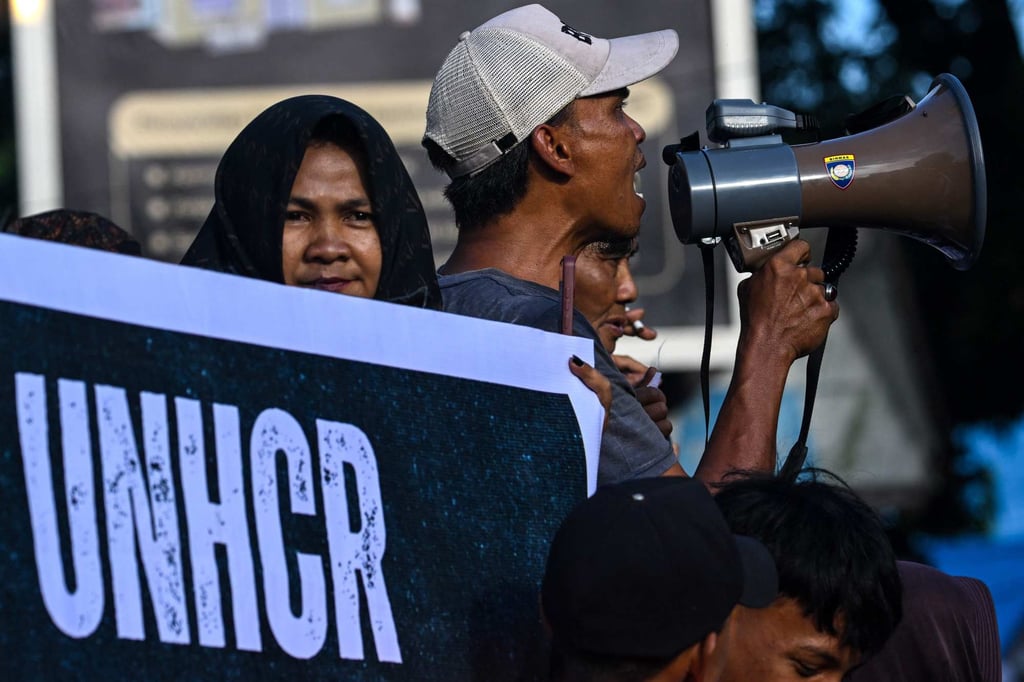In Indonesia, fake UN accounts spewing anti-refugee hate feed rejection of Rohingya
- Much of the resistance to Rohingya refugees stems from online misinformation, human rights activists say, as well as organised attacks against the UN
- More than 1,500 Rohingya Muslims have arrived in Indonesia’s Aceh province since mid-November. Officials say they’ve been ‘overwhelmed’ by the influx

“We are very much concerned that real people fell for these fake accounts, as well as the disinformation that is being orchestrated from real accounts,” Miklos Gaspar, director at the United Nations Information Centre in Jakarta, told This Week in Asia.
“The objective [of the organised hate campaigns] appears to be to make it more difficult for the local authorities and the United Nations Human Rights Council to cooperate on finding temporary shelters and providing human interior assistance [to the refugees].”

“Our demand is to reject them all. They must leave. Because Sabang people are also having a hard time, they cannot accommodate any more people,” one protester, Samsul Bahri, was quoted as saying by the Associated Press.
The protesting Acehnese also claimed that Rohingya have been behaving badly and not following local rules. On December 9, a Rohingya man was assaulted over an allegation that he had sexually harassed a woman at a shelter. UNHCR, the UN refugee agency, said this was a misunderstanding.